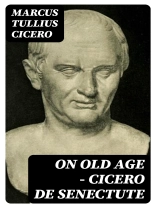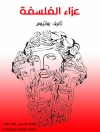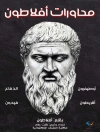In ‘On Old Age’ (Cicero de Senectute), Marcus Tullius Cicero explores the philosophical reflections on aging and the intrinsic value of old age. Written in a dialogue format reminiscent of Greek traditions, the text artfully addresses aging’s inevitabilities and the wisdom it can usher. Cicero, through the character of Cato the Elder, presents arguments that counter societal views which often regard old age with disdain. His eloquent prose and rhetorical skill emerge from a rich literary context steeped in the Roman tradition, making it a cornerstone of Stoic philosophy that seeks to inspire resilience and virtue in the face of life’s transience. Cicero, a statesman, orator, and philosopher of the late Roman Republic, penned this work during a tumultuous time, marked by political unrest and personal loss. His thoughts on aging reflect not only his intellectual pursuits but also his grappling with his mortality amidst the fading Republic. Engaging with the traditions of philosophy and rhetoric, Cicero’s own experiences significantly influenced his contemplative approach toward the stages of life. ‘On Old Age’ serves as an essential read for anyone seeking solace and understanding in the natural progression of life. Its timeless wisdom transcends the ages, offering profound insights on how to embrace aging with dignity and purpose, encouraging readers to cultivate a perspective that honors the contributions of seasoned experience.
Despre autor
Marcus Tullius Cicero (106-43 BCE) stands as one of the most illustrious figures in the annals of Roman scholarly and political life. His prolific career encompasses roles as an orator, statesman, political theorist, and philosopher. Born into a wealthy equestrian family in Arpinum, Italy, Cicero’s intellectual pursuits led him to Rome, where he embarked upon the intricate cursus honorum, Roman Republic’s sequential order of public offices. Cicero’s rhetorical prowess was unmatched in the courts, where he often used his eloquent speech to sway the hearts of both the public and the Senate.
His literary corpus is vast, with works delving into rhetoric, philosophy, and politics, showcasing his profound engagement with Greek thought and the Roman constitution. ‘On Old Age’ (De Senectute) is one such work that explores the challenges and virtues of aging, offering insights into leading a fulfilling life in its waning years. Cicero’s prose is often marked by its clarity, ethical concerns, and the use of philosophy as a guide to public and private life. In ‘De Senectute, ‘ Cicero employs a Ciceronian dialogue to present a nuanced view of old age, discussing how it can be embraced rather than feared. This work, among others, evidences Cicero’s enduring influence on Western thought and his recognition as a paragon of classical Latin prose. His texts not only showcase intellectual depth but also the stylistic finesse that has enamored generations of scholars and literary aficionados.












